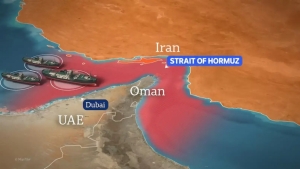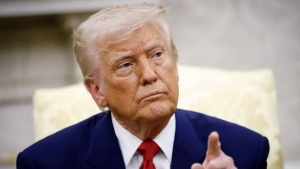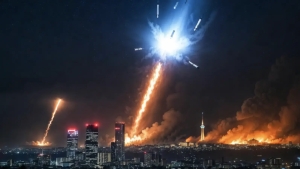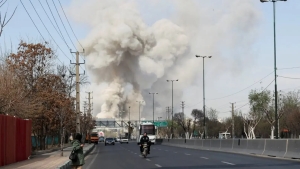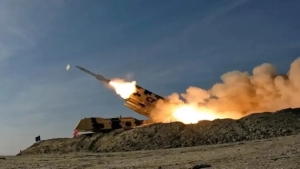Russia has fallen into the oil "trap"...

Saudi Arabia has made the largest drop in oil prices in the last two years — it has reduced the price of its main oil grade, Arab Light, by up to $2.30 per barrel for Asian customers.
According to Bloomberg, this decision was made just a few days after OPEC+'s unexpectedly sharp decision to increase oil production by up to 400,000 barrels per day.
Additionally, "Trump's tariffs" have also dealt a serious blow to global oil prices — the price of oil fell by $10 in one day: from $75 to $65 per barrel. This is the lowest level observed in the last three years. For Russia, whose budget is directly linked to global oil prices, this was a real economic blow.
Previously, Trump had demanded OPEC+ to lower oil prices. He stated that this demand was necessary to reduce inflation and increase pressure on Russia — thus trying to urge the Kremlin to end the war in Ukraine.
Brent below $65 — a threat for the Kremlin
The price of Brent crude in London has fallen below $65 — the lowest level in the last four years. For comparison: Russia planned its 2024–2025 budget with the expectation that oil prices would be above $70. Every $1 loss per barrel means billions of rubles in damage to the budget. Saudi Arabia, on the other hand, plans to gradually increase oil supply, which poses a risk of further price declines.
Why is this situation painful for Russia?
The Russian economy is critically dependent not only on oil but also on gas exports. These revenues are financing the Kremlin's military expenditures, including the war against Ukraine. In a situation of increasing budget deficit, cheap oil could ruin the Kremlin's plans to continue its military campaign.
If prices continue to fall, Moscow will face a tough choice: either cut military spending or be forced to print rubles. The latter will drive inflation up. In both cases, this means economic disaster for the Kremlin and severe consequences for the Russian people.
Trump's role
According to Bloomberg, OPEC+'s increase in production and price cuts occurred against the backdrop of pressure from U.S. President Donald Trump. Trump demanded OPEC+ to lower prices, which he considered necessary to combat inflation and increase pressure on Russia. His decision simultaneously affects two fronts: it reduces Russia's revenues from hydrocarbon exports and deprives the Kremlin of a source to finance the war.
Low prices are exacerbating problems
The price of oil has fallen by more than 10 percent in a week. Saudi Arabia has sharply reduced prices for the first time since the beginning of 2022. Starting in May, an additional flow of oil will enter the market. Along with this, Moscow is losing its influence within OPEC+ — Saudi Arabia is increasingly acting independently.
A dangerous scenario for Russia
Russia has fallen into the oil trap. Such a sharp decline in prices is hitting the weakest point in the Russian economy — revenues from oil exports. If prices do not stabilize, the Kremlin could face a budget disaster on a scale not seen even during the 2014 crisis.


